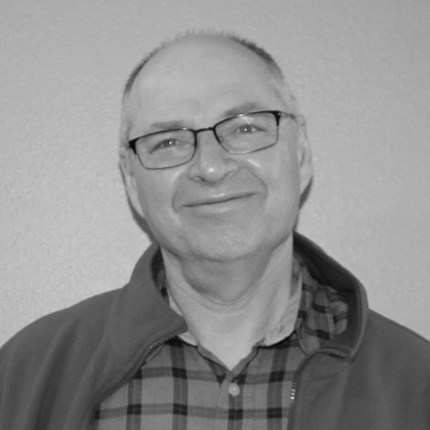A degree in general agriculture and a desire to explore his options brought Charles Shapiro from New York to Nebraska in 1975. His passion for the practice kept him here to further his education, and brought him back to the state for good in 1984.
A self-described “agricultural scientist,” Charles discovered the Center for Rural Affairs shortly after arriving in Nebraska and has taken an interest in the organization since its early days.
“I came to Nebraska because that was where there was a lot of agriculture,” he said. “I went to a meeting sponsored by the Center and agreed with their approach to providing both information about alternate farming practices and making public policy suited to the family farm.”
Throughout his career, he had many opportunities to work alongside staff and eventually became a member of the Center’s Advisory Committee.
Advisory Committee members are recruited for their special backgrounds and insight into the Center’s program areas. They meet quarterly with the Board of Directors and Center staff.
“Being part of the Advisory Committee has allowed me to provide technical assistance and focus almost 100% of my attention on subject matter,” he said. “I remain on the committee because I support the organization, like the people, and can provide some historical perspective since many of the early members have retired.”
Charles spent most of his career in the academic field and focused on production issues related to Nebraska agriculture. He retired in January 2018 and now does some consulting and community service work.
His decades of experience and expertise allow him to add valued input during committee meetings.
“I like to think that I look for data and research information to inform my decisions, and I try to put the details in context with a broader system analysis,” he said. “I see myself as being a supporter of what the Center wants to do, and one who is also thinking about how the expectations and reality might relate to each other.”
He said the Center works to make the American Dream a reality for people who want to be part of a democracy that rewards ideas, innovation, and hard work.
“Much of mainstream society does not focus on helping people be part of the ‘melting pot,’” he said. “The Center does not get the credit it deserves for trying to keep the playing field even for entry-level efforts, but it is a critical component of our economy and our social fabric.”
Charles says the Center’s vision of a market economy that is not controlled by political power, social status, or money is what appeals to him most.
“The Center’s support for marginalized, minority populations to participate and help improve our society motivates my continued contributions to the organization,” he said. “I also like that the Center is not constrained by one methodology, that it helps in education, policy, and economics, as well as how the organization searches out other groups to partner with to make their efforts more effective.”
Looking back, Charles says a few projects stand out to him as major highlights of his time on the Advisory Committee. The list includes identifying problems that were not fully recognized and writing white papers that brought attention to them, particularly on the topics of acknowledging the damage caused to the Sandhills by center pivots, the role of corporate pig production, and the dangers of climate change.
He said the Center’s work continues to be vital.
“Our country seems divided between those who think all problems stem from the government and that social programs should be cut, and those who think businesses are bad and the government should have a program for every issue,” Charles said. “The Center recognizes that there is a place for the government to play referee, to help initiate programs, and that business, especially small businesses, are critical to an improved society.”
He hopes the Center’s mission and programs continue to inspire others for generations to come.
“The Center has done an excellent job of attracting young people to keep the focus on current issues using technology and the communication methods that are appropriate for the times,” said Charles. “The Advisory Committee system is a good mechanism to include outside ideas and keep both the wisdom of experience and the idealism and enthusiasm of the young balanced in a productive way.”
Charles is excited to do his part to help make that happen while working alongside others committed to the same goal.
“The Center attracts a rich selection of engaged, interesting people, and it’s a joy to know there are similar thinking, caring people working on these issues across the state,” he said. “The board, the staff, and the many interns all together make a stimulating mix of ideas and experiences. I thank everyone at the Center, young and old. It has been an honor to work with this group for so many years.”




